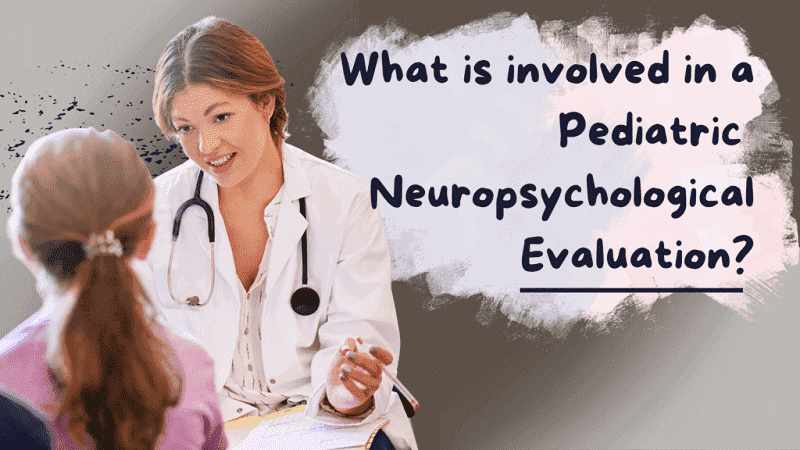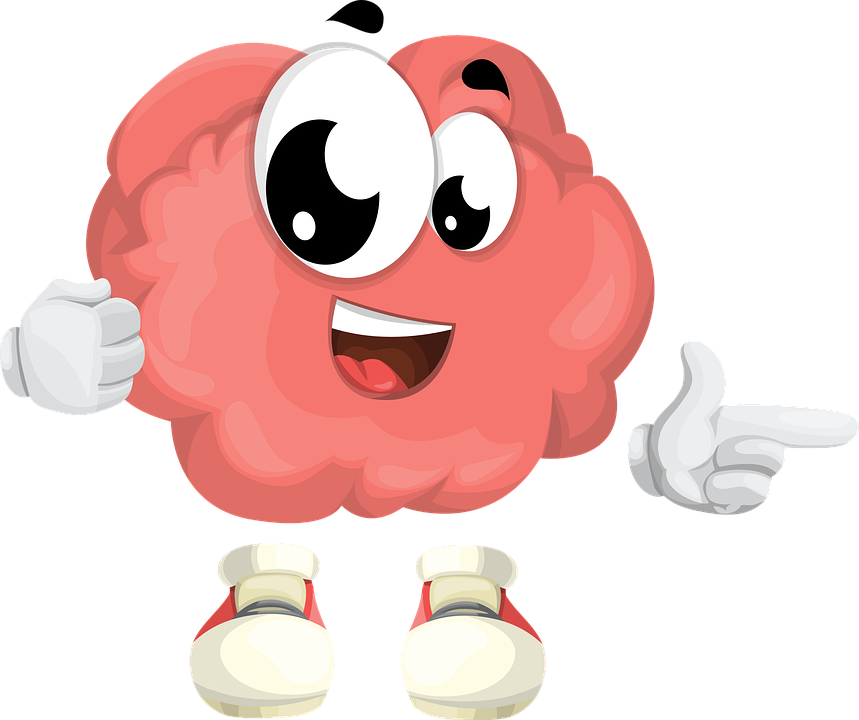
19 Aug Pediatric Neuropsychological Evaluation
What is the Goal of a Pediatric Neuropsychological Evaluation?
A neuropsychological examination, sometimes called neuropsychological testing, thoroughly evaluates brain-related skills and abilities. It assesses attention, problem-solving, memory, language, I.Q., visual-spatial abilities, academic skills, and social-emotional functioning.
A neuropsychological examination is distinct from tests performed as a neurological evaluation (for example, EEG) or neuroimaging (e.g., C.T. or MRI scan).
One thing to keep in mind is that a neuropsychological assessment will not change your child’s personality. They will be the same sweet (and occasionally tricky) youngsters they were before the examination. So, what exactly is a neuropsychological assessment?
What is the goal of a pediatric neuropsychological examination?
Doctors use a pediatric neuropsychological exam to grasp a child’s strengths and weaknesses thoroughly. Neuropsychological assessments are typically beneficial for children who have one or more of the following:
- Illnesses of the brain and body
- Disorders of the genome
- Psychiatric disease or abnormalities of behavior
- Disabilities of development
- Problems with learning compared to peers
⏩Need A Neuropsychology Referral?⏪
What is the purpose of a neuropsychological evaluation?
Neuropsychological tests are conducted to determined and describe brain-behavior correlations. This is achieved by testing several cognitive domains and evaluating an individual’s performance on tasks within these domains and comparing those results to the standards and expectations set for their age and developmental level.
They assess the following domains of functioning during a neuropsychological evaluation:
- Ability to Think (I.Q.)
- Processing of Visual-Spatial Information
- Coordination of the muscles
- Executive Functions (Inhibition, Planning, Organization, Working Memory, etc.)
- Attention
- Learning and Memory
- Language Abilities
- Developmental Skills (Reading, Writing, Math)
- Social Aptitudes
- Adaptive Performance
- Emotional/Behavioral Functioning
What happens during a pediatric neuropsychological evaluation?
A comprehensive pediatric neuropsychological evaluation has numerous parts. Specifics may differ depending on the purpose of the referral or evaluation request. Always confirm with a specific neuropsychologist what will be included in your child’s examination as they can vary based on the child’s age, needs, and who is performing the assessment.
Intake for Parents/Guardians
The parent intake session often occurs at the start of the evaluation and allows the parent or guardian to submit information on the child’s developmental, medical, educational, and psychological background.
Understanding the child’s and family’s background is extremely helpful and is an important piece of the evaluation. It is also an excellent time to ask any questions concerning the procedure.
Intake of Children and Neuropsychological Testing
Classroom observations are sometimes required to fully observe the child’s behavior.
In the classroom, the neuropsychologist may check for behavioral responses to how your child responds to:
- Instructors and peers
- Social connections
- Capacity to work when anticipated
- Compliance with adult commands
- Ability to sustain attention with activities
- And any withdrawal, anxiety, and outbursts
Feedback Session
During the feedback session, the specialist reviews the evaluation findings and suggestions with the parent(s) and guardian. With the parent’s permission, the results are also typically shared with the child’s school, source of referral (such as your child’s pediatrician), and other specialists working with your child.
If the child’s age and level of functioning allow it, the student may also be involved in the feedback session.
How Will My Child’s Test Results Help Me?
The neuropsychologist can construct a profile of your child’s strengths and weaknesses by comparing your child’s test scores to those of their peers or standards for children of similar age. The outcomes of the evaluation help in a variety of ways.
- Testing can help you understand why your child is experiencing difficulties in school. An attention problem, a language disorder, a learning disability, or anxiety, for example, might cause a student to struggle with reading.
- The pediatric neuropsychologist uses the testing results to make recommendations. These findings show which skills to improve and which techniques best help your child.
- Testing can assist in discovering the consequences of developmental, neurological, and medical issues such as epilepsy, autism, ADHD, dyslexia, or a hereditary condition. Specialists perform tests that help establish a baseline and measure the outcome of therapy or the child’s growth over time.
- Specific patterns of strengths and weaknesses emerge due to various developmental illnesses. These ability profiles can aid in identifying a child’s problem and the brain regions implicated.
- Testing can assist in distinguishing between an attention deficit and depression or determine whether a language delay is caused by trouble generating, interpreting, or expressing language, social shyness, autism, or a cognitive delay. There can also be a multitude of factors at play!
- Your neuropsychologist and physician may need to collaborate if further medical tests such as brain imaging and blood testing are requested.
- Most importantly, testing allows parents and teachers to modify their environments and use the appropriate strategies to help the student improve their performance in multiple environments. Teachers, therapists, and you may use the results to create a cohesive plan.
What happens after they complete the testing?
The family (and the child, if wanted by the parent or guardian) will get a thorough report describing the findings of the testing, as well as diagnostic impressions and related suggestions, shortly after the feedback session. These reports can be twenty pages or more in length!
Following the examination, neuropsychologists frequently collaborate with parents and other members of the child’s treatment team. The neuropsychologist, for example, may share the report with members of the child’s treatment and education team and perform follow-up consultations to address any concerns about the results or information.
In addition, depending on the family’s preferences, certain neuropsychologists may attend school and IEP meetings or recommend families to education advocates, therapists, and educators.
Check out our other blogs:
➡ A Parent’s Guide To Pediatric Neuropsychological Assessment
➡ Pediatric Neuropsychological Assessment FAQs
➡ What Is A Neuropsychological Evaluation And Its Purpose?
Want to learn more about the pediatric neuropsychological evaluation in New York City? Chat with Themba Tutors Today!
We will connect you to some of the best neuropsychologists in the New York City metro area!
Call: (917) 382-8641, Text: (833) 565-2370
Email: [email protected]
(We respond to email right away!)
Craig Selinger
Latest posts by Craig Selinger (see all)
- Psychotherapy and Support Services at Cope With School NYC - April 12, 2024
- NYC Parents of Teens Support Group - April 8, 2024
- Here I Am, I Am Me: An Illustrated Guide to Mental Health - April 4, 2024




No Comments